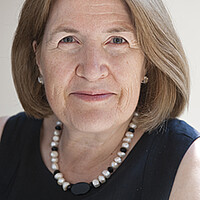Why Eric Cantor is stepping down early
Loading...
| Washington
Eric Cantor drew No. 1 in the freshman lottery on his first day in the House in 2001, and he's been at the front of the line ever since – that is, until he lost to economics professor Dave Brat in one of the most implausible primary upsets in House history. He resigned his seat on Thursday, another surprise.
Mr. Cantor, a prodigious fundraiser, had a storied House career. By the end of his freshman term, he had a seat at the GOP leadership table as chief deputy whip. He became majority leader in 2011. His relations with Speaker John Boehner (R) of Ohio, often measured in terms of clashes between aides on both sides, were seen as barometer on Capitol Hill, because somehow it seemed inevitable that Cantor would become speaker, perhaps even leading a coup from the right.
Instead, the coup from the right was aimed at him.
Cantor kept a low profile after his stunning June 10 loss. He resigned as majority leader, rarely attending leadership strategy sessions and generally making way for Rep. Kevin McCarthy (R) of California, a friend, to get established as new majority leader. The stately office space, the ubiquitous entourage of staff and security were gone.
Still, Cantor's announcement of plans to retire on Aug. 18 took the GOP caucus by surprise. As a parting shot, he called on Virginia Gov. Terry McAuliffe (D) to call a special election for Nov. 4 to ensure that "constituents have a clear and strong voice during the consequential lame-duck session of Congress," he said in a column announcing his retirement in the Richmond Times-Dispatch
"The issues that will be considered during the lame-duck session this year will be crucial to the future of our country. These debates will continue into the new Congress, and the people of this district deserve to have their new voice representing them and engaging on their behalf," he added.
Typically, a new member of Congress takes office the first week in January. Rebranding the race for Virginia's Seventh District on Nov. 4 as a special election means that the winner takes office immediately after the vote and participates in any lame-duck session of Congress, which typically wraps up spending bills for the fiscal year beginning Oct. 1 and other issues deemed too difficult or politically toxic to take up just before an election.
That "special election" advantage also gives the winner a head start on the tenure clock that affect outcomes ranging from committee standing to choice of office space throughout a member's legislative career. (In effect, Cantor could be handing his successor the No. 1 pick in next year's freshman office lottery.)
But an early exit from Congress also gives Cantor a head start on the one-year "cooling-off period" that limits how early former members of Congress can lobby former colleagues on Capitol Hill.
Within hours of Cantor's defeat, speculation churned on whether Cantor would opt for a K Street lobby firm or a Wall Street hedge fund or investment bank. Either way, with fresh contacts in Washington – and, likely, Republicans still in control of the House – Cantor starts out with an edge in both worlds. He has not spoken publicly of his plans.
“There are two famous streets in America that would be glad to employ him. Either Wall Street or K Street would pay him a pretty good chunk of change," Ivan Adler of McCormick Group in Washington told Politico.
"Fortunately for the former House majority leader, one truth remains self-evident in Washington: No matter how soundly you've been walloped by voters, 'opportunities in the private sector' await, writes Mark Leibovich in the New York Times Magazine last month.
Of course, Cantor's early-retirement scenario still leaves his district unrepresented through Nov. 3, including those critical five weeks in August when members often come face-to-face with constituents in town meetings, as they did in August 2010, when protests over health-care reform legislation launched the tea party movement.








